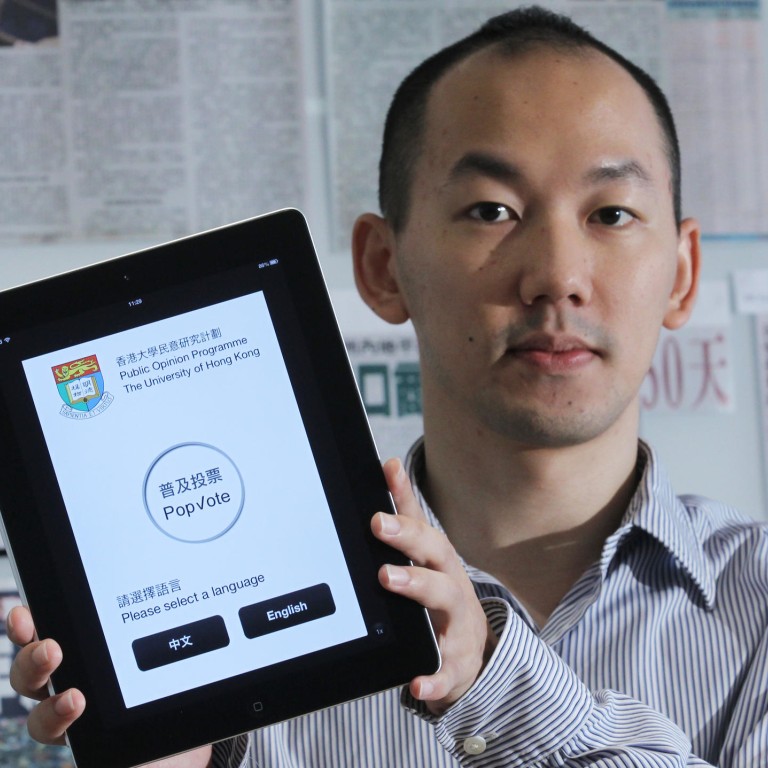
CSL and Citic linked to troubled Occupy Central 'referendum'
Two companies identified by industry sources after voters in Occupy Central poll on electoral reform struggle to get text messages through
CSL was the telecommunications company hired by the University of Hong Kong to support a New Year's Day "referendum" on electoral reform that was plagued by technical problems.
Three industry sources identified CSL as the company involved, while two of the sources said Citic Telecom International, which runs the server that acts as a gateway for text messages sent between different phone networks, may also have been responsible for some people being unable to cast votes.
"Too many [text] messages came in and Citic's gateway could not handle them in time," one source said.
Questioned about its involvement in the poll, CSL would not confirm that it was the company working with HKU, but said it had "prepared sufficient network bandwidth for the voting".
Citic said it had not been told the details of the poll in advance, meaning it was caught by surprise by the volume of text messages to one number.
Some 62,169 people voted in the poll, commissioned by organisers of the Occupy Central pro-democracy movement, through a smartphone application, on the internet or via a polling station in Victoria Park.
To authenticate their identities, online voters had to enter their full Hong Kong identity card number. They then received a text message with an authentication code that they had to send by text to a CSL server.
An unknown number of voters were unable to send the messages and many joined a long queue to vote in Victoria Park, where 2,771 votes were cast.
Questioned about its involvement, CSL said: "We had prepared sufficient network bandwidth for the voting, and the mobile network traffic was normal during that day."
But Jazz Ma, information technology manager with HKU's public opinion programme, refused to confirm or deny whether CSL was the company it worked with, citing a confidentiality agreement. But he reiterated that problems emerged even though the number of messages was well below the capacity of the telecommunications firm's server.
Ma met representatives of the company on Tuesday, who told him the problems were down to network "congestion".
Ma said he was aware that the errors affected text messages sent between different networks, supporting industry sources' claims that Citic may have played a role in the fiasco.
"One reason for the problems could be that Citic's gateway does not have enough bandwidth," the source said.
Sutton Cheung, Citic's chief technology officer, said: "The company was not made aware of the text application associated with the voting activities conducted by HKU's electoral reform poll, which generated a sudden surge of text messages towards one single recipient phone number. This resulted in a delay of text-message delivery." Citic refused to say directly whether that meant CSL had not informed it about the poll before it took place, as experts said CSL would have needed to do so to ensure the smooth running of the poll.
The "referendum" asked three questions about arrangements for the 2017 election for chief executive. Occupy organisers said the poll was intended to serve as a dry run for a more detailed referendum in June, before the group carries out its threat to have 10,000 activists occupy the streets of Central in the name of democracy.

